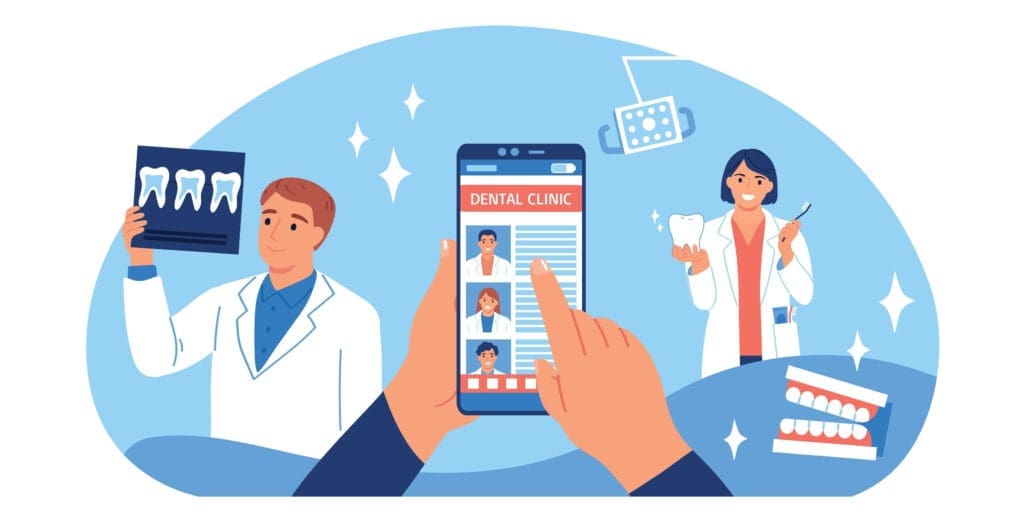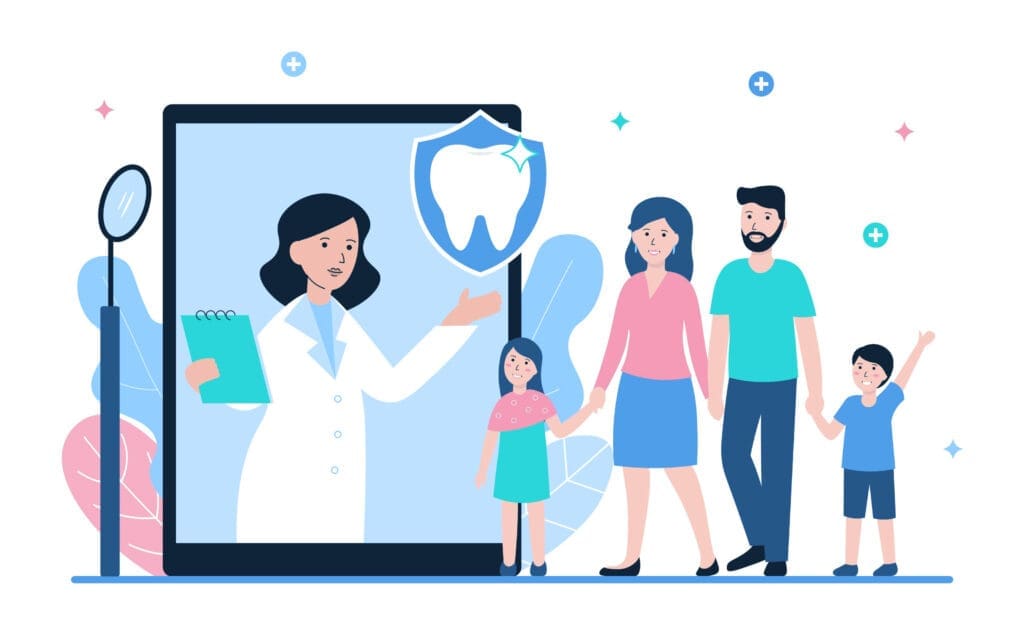Last updated on September 27th, 2018 at 10:06 am
 Q: Is it important to have a dedicated Scheduling Coordinator or can this function be shared amongst all of the front desk staff?
Q: Is it important to have a dedicated Scheduling Coordinator or can this function be shared amongst all of the front desk staff?
Great question!
The problem with sharing a function is that you end up with a situation where nobody is really responsible or accountable for that function.
A schedule should be in charge of production and making sure that the schedule contains a nice mix patients who have already accepted treatment (current production) and patients who will need treatment to be presented (future production).
 So, it creates quite a problem for the practice if nobody is responsible for this.
So, it creates quite a problem for the practice if nobody is responsible for this.
(Related: 1 Incredibly Simple Change to Make Your Front Desk More Efficient)
Early on in my career, somebody told me that the scheduling coordinator can make or break the practice. In my years doing this I found that statement to be absolutely true. It is absolutely essential to have one person be responsible for that function.
Now, depending on the size of your practice, this individual may also have other responsibilities (smaller office) or be completely dedicated to the schedule alone as the office grows. In any event one person MUST be ultimately accountable.
(Related: Should You Hire a Full-Time Scheduling Coordinator)
If the traffic is too heavy for one person to handle, then break it into scheduling coordinator and hygiene coordinator. In certain practices, especially where you’re scheduling in the back, multiple people are going to have their hands in the schedule. In this case, there needs to be scheduling policy and a clear definition of what the schedule should look like—and one person should be ultimately responsible for making sure it actually happens. This person would also ensure that daily goals with regards to scheduling are met.
As a side note, our online training platform, DDS Success, has training videos specifically on the subject of scheduling, so you can train the staff member in charge of scheduling in the comfort of your own office! I highly recommend checking it out.
(Related: Hiring a Front Desk Employee with No Prior Dental Experience)
Q: Should new patients (non-emergency) be scheduled to see the doctor or hygienist first?
There’s no “right” answer to this question and it’s really a matter of personal preference with a couple of modifying factors. These include how busy the practice is, the doctor’s schedule, the hygiene schedule, or your personal clinical philosophy.  The more important consideration is that there is adequate time in everyone’s schedule for a proper exam and resultant diagnosis from the doctor, and cleaning (same day if appropriate) by the hygienist.
 You’ll also want to ensure there’s time to present treatment. That day, if possible (time allowing), or soon thereafter during a consultation appointment. Personally, I’m not a fan of five minute treatment presentations for a comprehensive case. They don’t really go anywhere and the patient becomes a name in the “incomplete treatment log.” I’d suggest ensuring you have adequate time to present a case and answer any questions and so on. It might be today – it might be next Monday if there’s no time.
You’ll also want to ensure there’s time to present treatment. That day, if possible (time allowing), or soon thereafter during a consultation appointment. Personally, I’m not a fan of five minute treatment presentations for a comprehensive case. They don’t really go anywhere and the patient becomes a name in the “incomplete treatment log.” I’d suggest ensuring you have adequate time to present a case and answer any questions and so on. It might be today – it might be next Monday if there’s no time.
(Related: 3 Easy Steps to Boost Productivity in Your Schedule)
So whichever way you schedule it, make sure to account for the time it takes to ensure the patient fully understands and accepts the treatment plan. If you need to rush through it and can’t adequately explain things to the patient, answer their questions, etc., your case acceptance will suffer and you’ll miss out on valuable production. And worst of all, the patient misses out on needed treatment!
Q: I seem to have a high staff turnover rate – what is happening?
This is an important question since the stability of your staff and their ability to do their job properly monitors the success and expansion of your practice—meaning it can be very disruptive if not handled.
(Related: Improving Staff Initiative in the Dental Office)
 High turnover could be created by a variety of issues, including but not limited to:
High turnover could be created by a variety of issues, including but not limited to:
- Not hiring the right person from the beginning
- Not training your staff properly
- Not apprenticing your staff properly
- Incorrect distribution of workload
- A lack of training manuals
The common denominator in all of these reasons is that the person in charge of hiring, training and posting staff is “too busy working” to pay attention to that part of their job. And the matter of actually training them and making sure they’re doing well is an afterthought–which means you essentially have a leaderless organization.
(Related: Surviving Staff Turnover)
The real reason behind this is usually that the person who is “responsible” for this (if there is someone assigned to it in your practice) doesn’t have any training on how to do it.
So if you have a high staff turnover, the first question I would ask is, “Who’s responsible for this?” Second question, “Does this person actually have time to do this job” Third, “Are they trained properly?”
It actually comes down to an executive function. The problem in this scenario is not “bad staff” or “nobody to hire.” The problem scenario is untrained or inept executives. Sort that out and you won’t have this problem anymore. At MGE, we train doctors and office managers to be effective executives, and our online training platform, DDS Success, trains many of the position in your office so you have the best team possible. Give us a call at (800) 640-1140 if you’d like help with this.



What do you suggest when there is one person who assists at least one day a week, runs the business of the office along being responsible for all dental inventory, implants and patient concerns. In being responsible for operating the details of the business, that includes all recalls for hygiene, statements for billing, all insurance, and handling all details for that day.